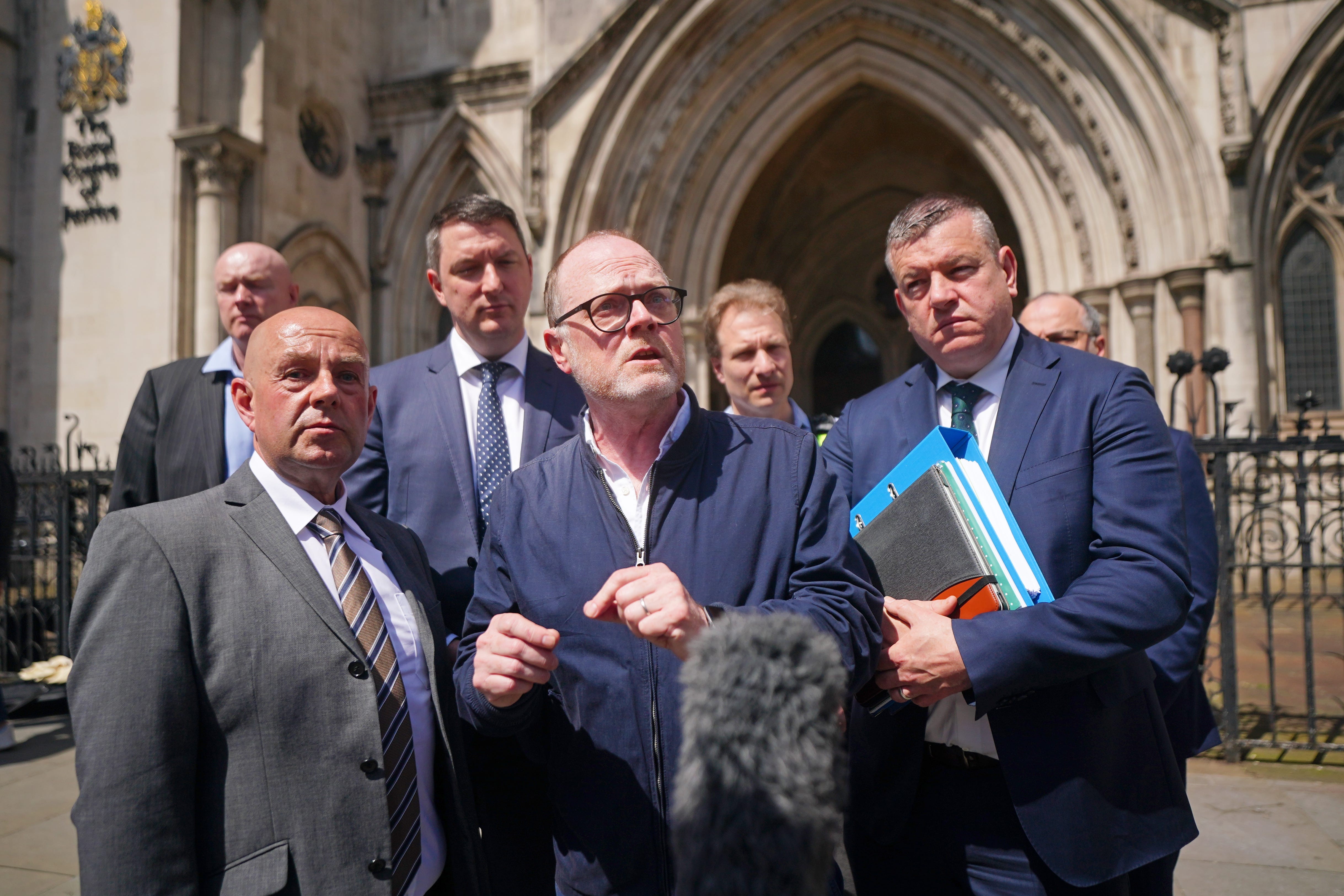Claims PSNI spied on journalists ‘undermining confidence in policing’
Two human rights organisations have made a fresh call for a Policing Board investigation into the claims.

Claims made during a tribunal hearing that the Police Service of Northern Ireland (PSNI) carried out surveillance of the phone data of journalists are “undermining confidence in policing”, two human rights organisations have said.
Amnesty International and the Committee on the Administration of Justice (CAJ) have written to the Northern Ireland Policing Board, the oversight body of the PSNI, making a fresh call for an inquiry into the claims.
A hearing of the Investigatory Powers Tribunal (IPT) in London last week heard claims that police in Northern Ireland undertook six-monthly trawls of the phone data of “troublemaker” journalists to see if they were in contact with officer sources.
It came during a hearing of a case examining allegations that investigative reporters Barry McCaffrey and Trevor Birney were subject to unlawful covert intelligence by the police.
PSNI Chief Constable Jon Boutcher is to hold a private meeting with the board’s leadership on Wednesday.
It now appears that there was routine surveillance of the phone data of journalists
The letter from the two organisations said the IPT case “has now revealed that covert surveillance has been deployed against journalists on multiple occasions over the period of at least a decade”.
It continues: “It now appears that there was routine surveillance of the phone data of journalists, and possible surveillance of the spouse of one journalist as well as their lawyer.
“Further, we understand that the limited disclosure of information to date by the Chief Constable to the Policing Board points to multiple instances of covert surveillance by the PSNI of journalists and lawyers.
“Public disquiet at the intrusive, covert and possibly unlawful use of surveillance powers by the PSNI is considerable.
“The partial and drip feed disclosure of relevant information by the PSNI, both to the IPT and to the Policing Board is further undermining public confidence in policing here.”
The two organisations urge the board to establish an inquiry under the Police (Northern Ireland) Act 2000.
Following last week’s tribunal claims, the Policing Board said an urgent meeting had been sought with Mr Boutcher.
Board chairman Mukesh Sharma and vice chairman Brendan Mullan said they wanted to “seek further clarification and assurance around whether surveillance powers have been used lawfully, proportionately and appropriately in the past”.
Mr Boutcher said the PSNI would co-operate fully with the IPT hearing but said he wanted to wait until that process concludes before “speculating about what might or might not have happened in the past”.
Bookmark popover
Removed from bookmarks